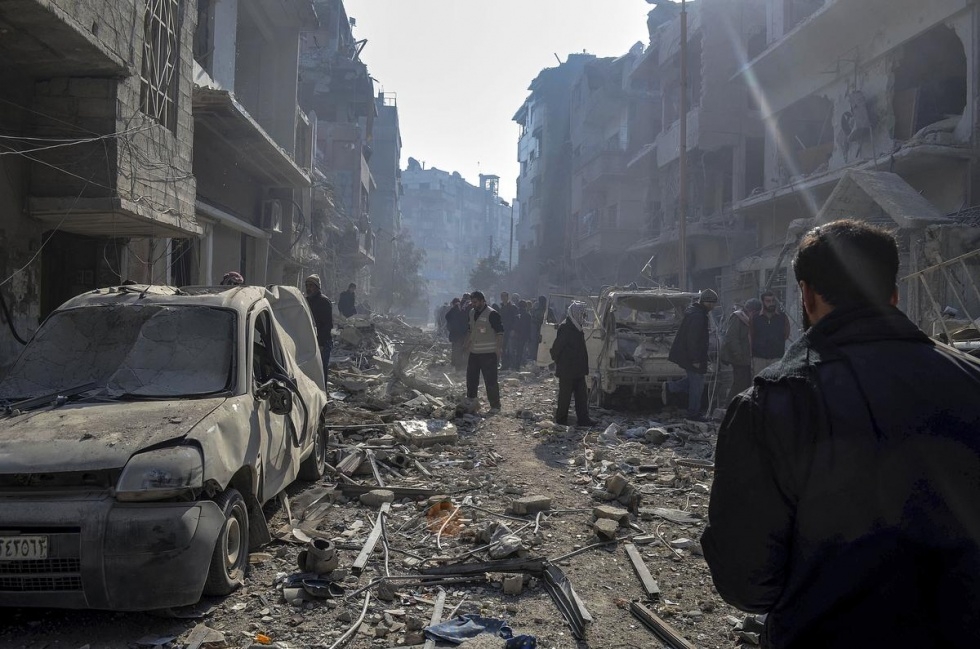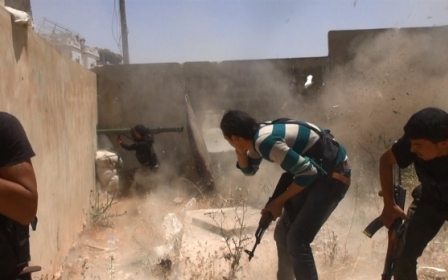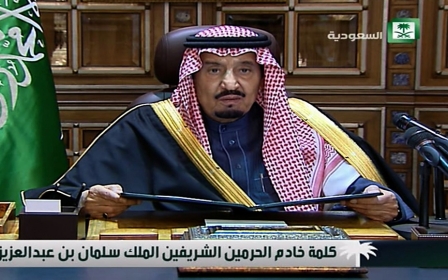US rejects concerns it has abandoned Syria rebels

NEW YORK – The US State Department says it will continue to support armed Syrian rebel groups, amid reports that American weapons and cash supplies to some units are drying up, and deepening concerns over US strategy in the country.
Spokeswoman Jen Psaki said on Wednesday that the US has provided $2.7m worth of trucks, generators, food and other “non-lethal” aid to moderate Syrian opposition groups this month, while the Pentagon will begin arming and training some rebels this spring.
But she refused to discuss “covert programmes”, such as a Central Intelligence Agency (CIA) scheme to supply ammunition and weapons and pay the salaries of vetted rebel units that are already fighting Islamists and Syrian President Bashar al-Assad’s forces.
Rebel fighters connected with the Free Syrian Army (FSA), Harakat al-Hazm and the Syria Revolutionaries Front have reportedly complained that CIA funding for soldiers’ wages has declined in recent months and – in some cases – ended entirely.
Evan Barrett, an adviser to the Coalition for a Democratic Syria, a Syrian-American opposition group with links to rebel forces, said the CIA cut funding to north Syrian rebels after they lost terrain to al-Qaeda’s Nusra Front in the northwest province of Idlib towards the end of last year.
“The US is damping down support for people it previously called allies in the north at the exact moment that they’re most vulnerable,” he told Middle East Eye. “It’s an ongoing story of the US being a bad and duplicitous partner.
“Whether it’s the CIA covert programme, that’s implemented with the Gulf countries, or now the Pentagon’s new train-and-equip programme, everything is irregular and less than advertised.”
According to Jennifer Cafarella, a fellow at the Washington-based Institute for the Study of War, a US strategy “recalculation” has seen support shift to FSA-linked rebel commanders who are making gains against Assad’s forces in southern Syria.
“The US is throwing in the towel on something that has been clearly ineffective,” added Christopher Harmer, the institute’s military analyst. “It has lost the fight in the north in terms of establishing a functional moderate rebel army and is switching resources away from that.
“The military activity on the ground is clearly at a point where we are enabling the Assad regime’s survival; and we are not coordinating with the moderate rebels in the north anywhere near as much as we should, if we think they’re a viable force.”
$500m US training scheme in eastern Syria
US officials deny this, however, and say they are sticking to a policy of bolstering rebels, opposing Assad and eliminating Islamic State (IS) fighters across Syria and Iraq.
On Wednesday, the US military said 13 coalition air strikes over the previous 24 hours had helped drive IS out of 90 percent of Kobani, a city on the Syria-Turkey border where fighting has raged for four months.
Pentagon spokeswoman Cmdr. Elissa Smith told MEE that a $500m Congress-backed scheme to train and equip some 5,000 “members of the moderate political and armed opposition” to tackle IS in eastern Syria has already begun.
“The first advance detachment has begun to arrive in the region,” she told MEE on Wednesday. “We expect the next wave of several hundred of the trainers and enablers to be deployed in the next few weeks.”
The training scheme is a part of US President Barack Obama’s multi-year plan to field local forces in Syria to halt and eventually roll back IS fighters, while pounding them with US-led airstrikes. Critics in Congress have said the Pentagon programme won’t aid Syrian opposition forces fast enough.
On Sunday, Dianne Feinstein, a Democrat on the Senate Intelligence Committee, said Obama’s anti-IS strategy did not go far enough. “I do think we need some special operations in these countries, on the ground, more than just advisors,” she said.
Others warn that once-moderate rebels are switching to Islamists and Assad’s forces in a bid to side with a likely victor in a conflict that has claimed more than 200,000 lives since pro-democracy protests in 2011 quickly spiralled into a multi-pronged, brutal civil war.
Meanwhile on Wednesday, the United Nations warned that it cannot deliver aid to some 600,000 people in the de facto IS capital of Raqqa and IS-held Deir ez Zor because it does not have deals with the Islamist militia there.
“At the beginning of the conflict, nearly four years ago, one million people needed humanitarian assistance inside the country. Today, that figure stands at 12.2 million,” UN deputy humanitarian chief Kyung-wha Kang told the Security Council.
“We must not allow the world to forget Syria and the atrocities being committed against its people."
New MEE newsletter: Jerusalem Dispatch
Sign up to get the latest insights and analysis on Israel-Palestine, alongside Turkey Unpacked and other MEE newsletters
Middle East Eye delivers independent and unrivalled coverage and analysis of the Middle East, North Africa and beyond. To learn more about republishing this content and the associated fees, please fill out this form. More about MEE can be found here.




